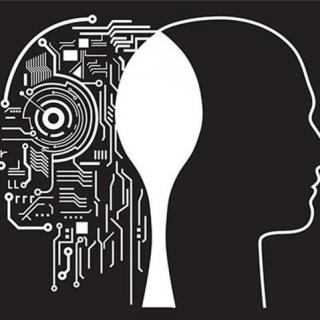
介绍:
Have you ever wondered what it would be like if machines could think?
你是否想过,如果机器能思考,世界将怎样?
A few short decades ago, such an idea may have belonged in the realms of science fiction, but nowadays it's not so far-fetched.
几十年前,这样的想法可能被归入到科幻小说领域,但是现在却并非遥不可及。
As something of a tech junkie myself, I follow the latest advancements in artificial intelligence with great interest.
作为科技迷,我热衷于追踪人工智能的最新进展。
Late last month, world No 1 Go player Ke Jie from China tried and failed to beat the computer program AlphaGo, which was developed by Google's DeepMind Technologies in London.
上个月末,排名世界第一的中国围棋手柯洁向计算机程序AlphaGo发起挑战,结果连输三局。AlphaGo是由谷歌公司旗下的DeepMind科技公司开发的计算机程序。
It was close, with DeepMind CEO Demis Hassabis even saying Ke "pushed AlphaGo right to the limit" in the second round. Yet ultimately, the machine won out.
AlphaGo与柯洁的比赛结束了,DeepMind总裁杰米斯•哈萨比斯(Demis Hassabis)甚至称赞柯洁在第二轮比赛中“迫使AlphaGo接近了极限状态”。可是,最终还是机器胜出了。
Ever since IBM's Deep Blue beat world chess champion Garry Kasparov two decades ago, technologists have sought to develop a computer that could win at Go; a far greater accomplishment, given the number of moves available.
自从二十多年前IBM的深蓝程序击败国际象棋冠军加里•卡斯帕罗夫,技术人员们就开始研发能够打败围棋选手的计算机程序;鉴于围棋的变化招数,后者的研发成果更加非凡。
And while AlphaGo's victory over Ke is certainly symbolic, it does not yet mark the advent of true artificial intelligence. AlphaGo is what is known as a "weak AI", operating within a pre-defined range with no self-awareness. Humans have yet to develop anything close to full artificial general intelligence.
虽然AlphaGo战胜柯洁具有象征性意义,但是这还不是真正的人工智能出现的标志。AlphaGo被称为“弱人工智能”,它执行的是预先定义范围内的无自我意识的操作。人类还没有开发出接近完全的人工智能。
That hasn't stopped us from trying, however, and it's an area where China is increasingly taking the lead - recently surpassing the United State in AI research with a plethora of tech giants, including Baidu, Didi and Tencent, all having set up their own research labs.
然而,这没有阻挡住我们探索的脚步,而且在人工智能研发领域,中国正日益超过美国,拥有众多科技巨头公司,包括百度、滴滴和腾讯在内的大公司都已经创立了自己的研发实验室。
Beijing-based technologist and former head of Google China Kai-Fu Lee has even predicted that AI is set to replace 50 percent of all jobs in the next 10 years, in a tech revolution that he claims will eclipse all others "added together".
谷歌中国前总裁李开复甚至预测,人工智能将在未来十年取代50%的工作职位,他称之为将会超越其他“所有科技成果总和”的技术革命。
A similar warning was sounded by billionaire founder of Tesla and SpaceX, Elon Musk, who said three years ago that it was "increasingly probable" humans would one day be looked back upon as "just the biological boot loader for digital superintelligence".
Tesla和SpaceX公司创始人、亿万富翁伊隆•马斯克(Elon Musk)在三年前发出了同样的警告,人类“越来越有可能”会被后人视为“生物引导加载程序的数字超级智能”(Biological boot loader for digital superintelligence)。
Indeed, his apprehension seems to be shared by Chinese film director Zhang Yimou, whose latest work, the stage play 2047 Apologue, is set in an imagined future where one of the performers dances for eight minutes with what's been described as a killer laser.
事实上,他的担忧似乎也在中国电影导演张艺谋在最新的舞台剧《对话•寓言2047》中得到了体现。这部舞台剧将背景设置在不可预测的未来,其中有一段八分钟的激光舞蹈表演。
Yet are these fears justified? Jaron Lanier, a US computer scientist, composer, performer and philosopher, has argued that true AI is impossible to create at present because humans "don’t yet understand how brains work, so we can’t build one."
可是,这些恐惧的考虑合理吗?美国计算机科学家、作曲家、演奏家和哲学家杰伦•拉尼尔认为,人类目前创造不出来真正的人工智能,原因是人类“还不够了解大脑是如何工作的,因此我们也无法创造一个大脑。”
It's a valid point to make, seeing as for all the advancements in science and technology over the past few decades, we still can't say for sure how perception works, where memories are stored or what really constitutes consciousness.
这一点很符合逻辑。看看过去几十年的科学技术进步,我们仍然不能明确地解释感知是如何产生的,记忆被储藏在哪里,以及意识是由构成的。
And if we can't answer these most fundamental questions about our own information processing organs, how on Earth are we supposed to build an artificial one?
如果无法回答关于信息生产机制的最基本的问题,我们又怎么能创造出人工智能呢?
Creating a functional "strong AI" will doubtless prove to be incredibly difficult let's just hope that if it is achieved, it doesn't spell the end of our species as we know it.
毫无疑问,创造出能用的“强人工智能”是非常艰难的——这能否实现,我们拭目以待就好,希望它不会像我们了解的那样终结我们这个物种。
上一期: 一个我永远都不会告诉妻子的秘密Here’s the secret I’m keeping from my wif
下一期: Shooting a train death with phones用手机拍下火车上那幕死亡
下一期: Shooting a train death with phones用手机拍下火车上那幕死亡
大家还在听

